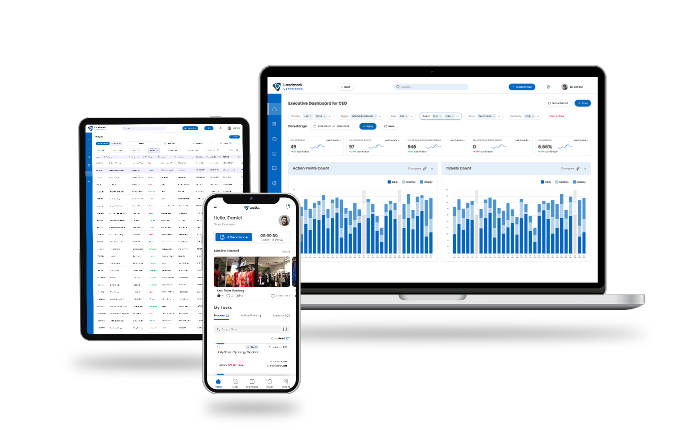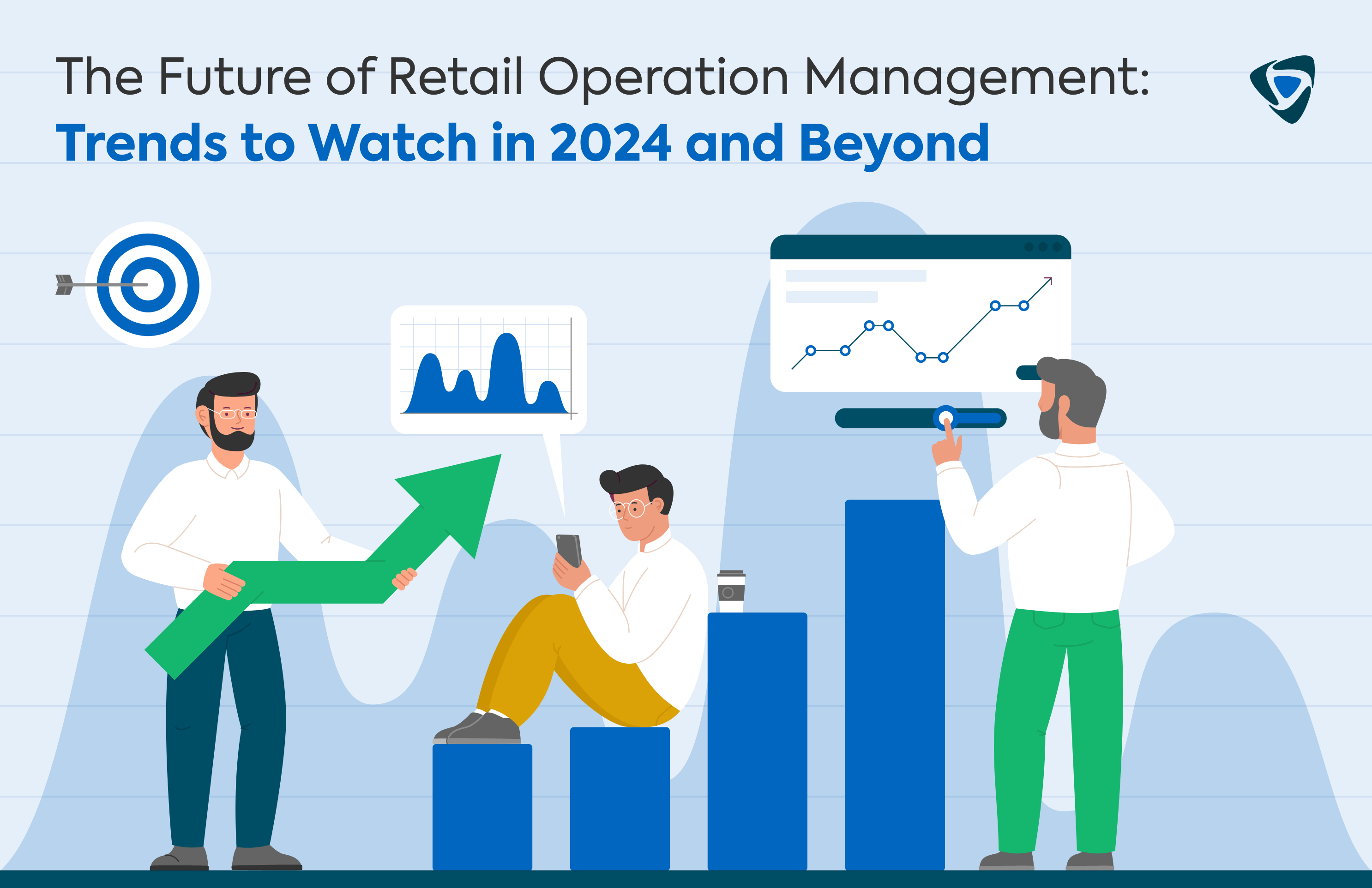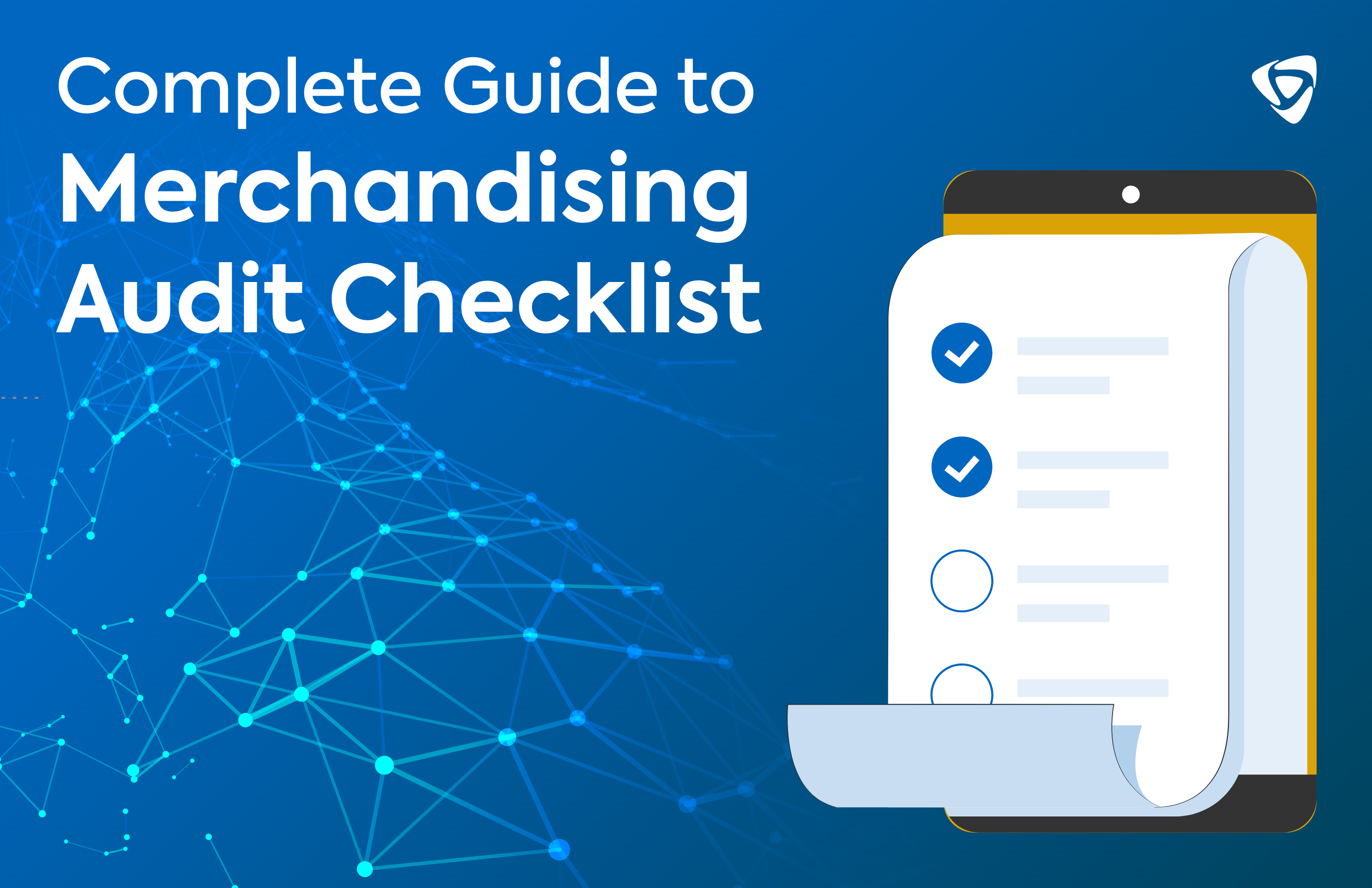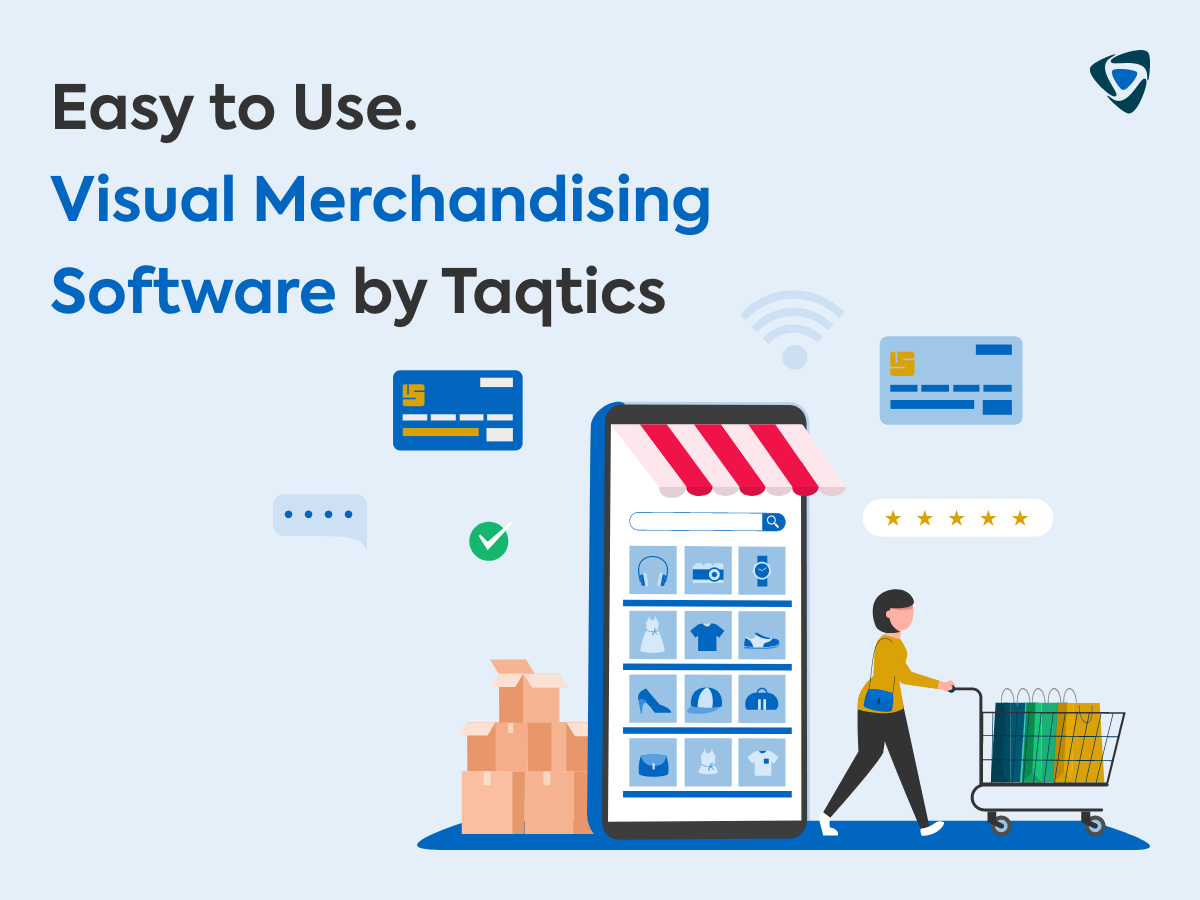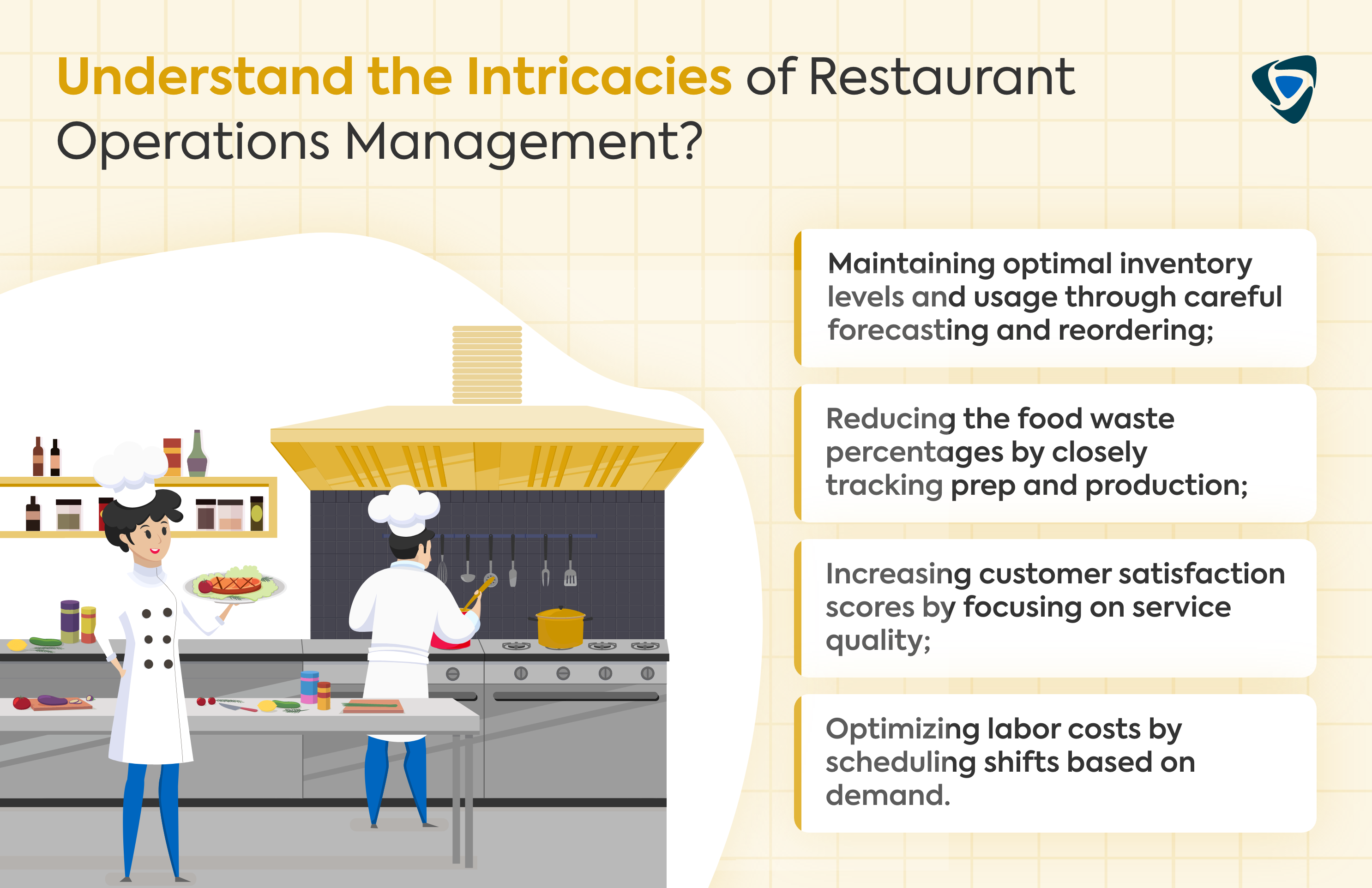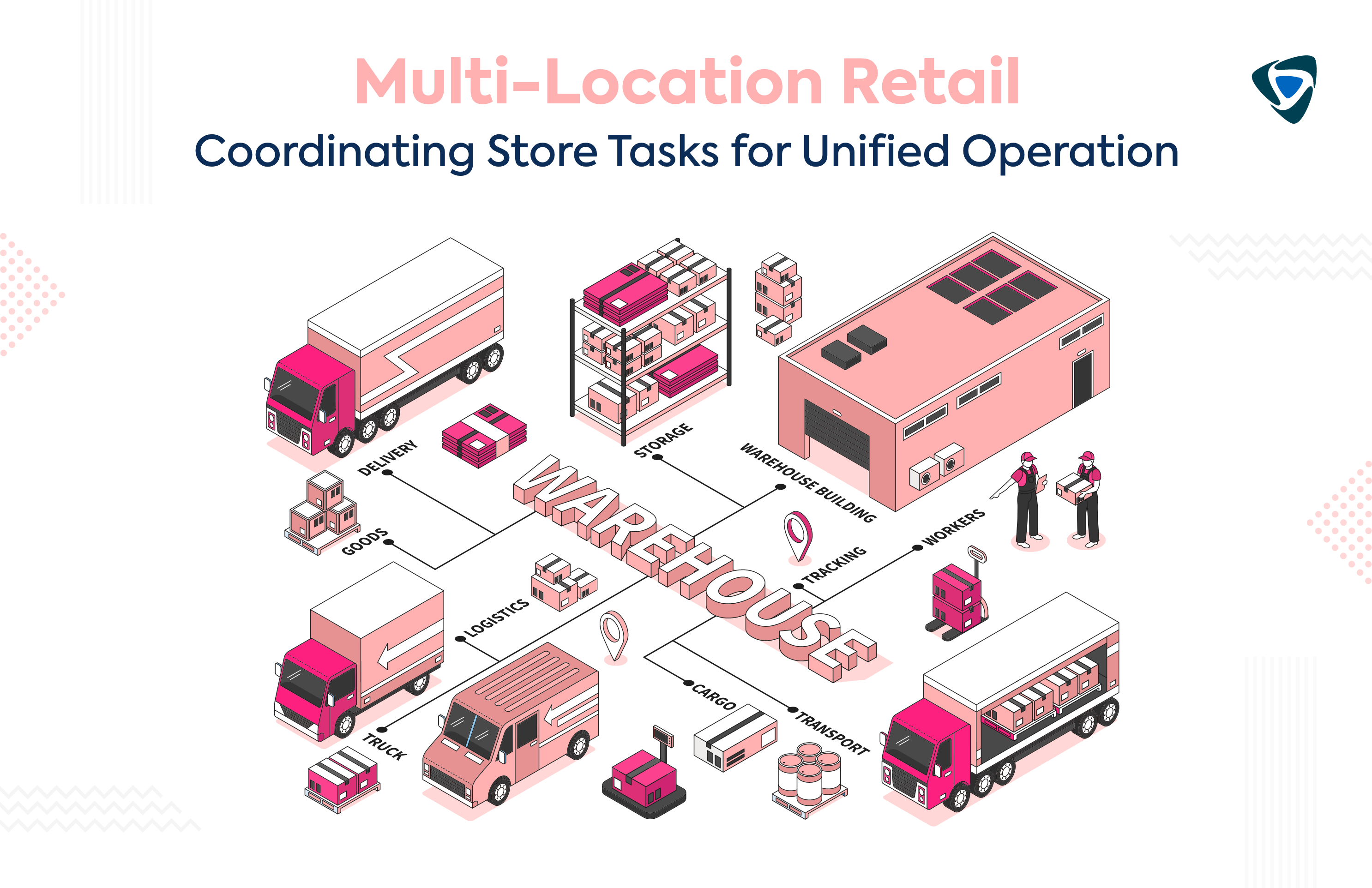Guide
The Ultimate Guide to Retail Compliance Management Software
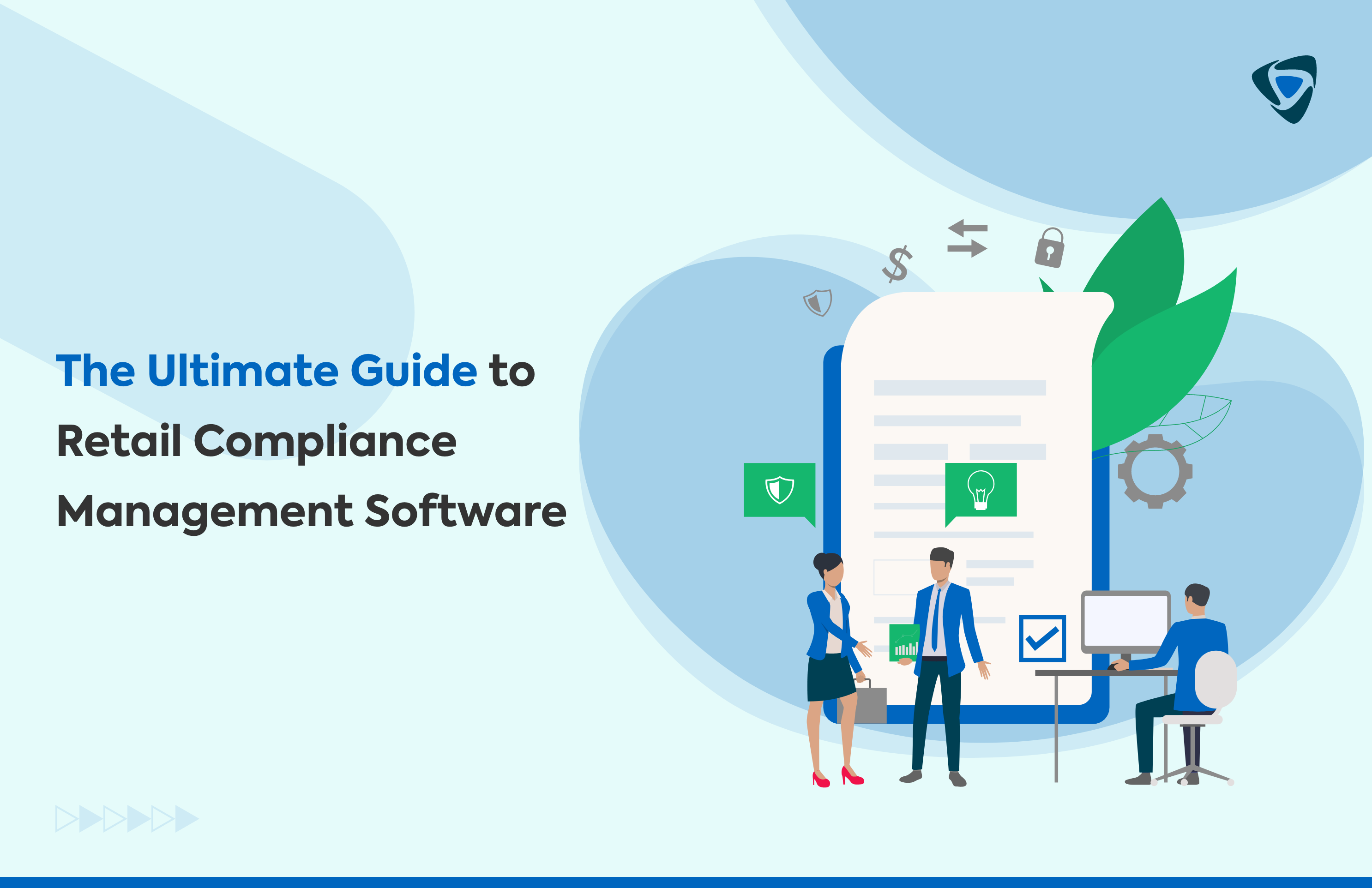
Retail compliance management software has become an essential tool to regulate these processes. The retail compliance management software helps to track, control, and monitor compliance tasks effectively.
It is crucial to follow industry regulations and standards in the current competitive retail environment. One of the main reasons to develop compliance in a retail environment is that businesses adhere to legal requirements and preserve brand loyalty and consumer trust. In this article, we explore the advantages and functions of retail compliance management software. Keep reading to know more!
What is Retail Compliance Management?
Compliance management in the retail industry is the series of procedures and practices adopted by a firm that aims at ensuring compliance with industry regulations, standards, or requirements. The compliance management includes operations like product quality monitoring, supply chain management maintenance of brand integrity, and adherence to statutory requirements. Successful businesses with happy consumers need good compliance management.
Why is Compliance Important in the Retail Industry?
Retail companies should comply with the regulations to maintain brand reputation, protect consumers’ lives and health as well as reduce risks. Let’s understand the key reasons to meet the retail industry’s compliance.
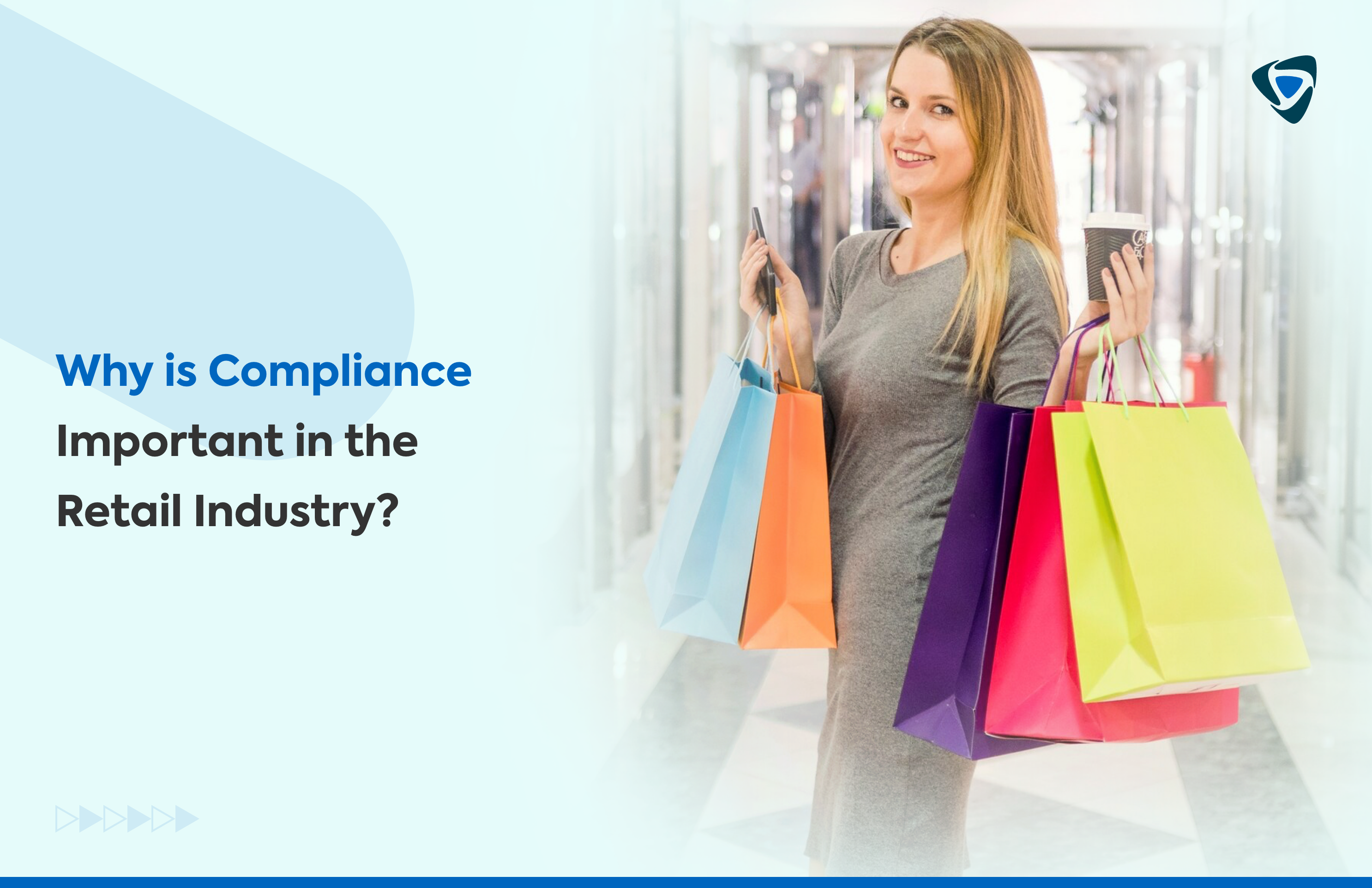
- Legal Issues: Compliance with regulations and laws that govern product safety, labeling as well as advertising protects against legal charges.
- Brand Integrity: Brand reputation and consumer trust are further achieved due to the consistency in product quality, packaging, and messaging.
- Consumer Safety: Following industry standards and regulations preserves the safe usage of consumers.
- Risk Management: Good compliance practices minimize the chances of product recalls, lawsuits, and reputational losses.
Failure to comply with industry practices and regulations can invite hefty fines and legal issues. Other than monetary losses, non-compliance with regulations can heavily affect your brand reputation, which affects the entire revenue more than fines. So, it is always better to meet the essential compliance requirements in the retail industry.
What are the Key Challenges in Retail Compliance?
Navigating retail compliance presents several challenges for businesses. Let’s understand them.
- Complex Regulations: Engaging in the retail industry is influenced by a wide array of rules that are applied at local, national and international levels which makes compliance management to be complex and time-consuming.
- Supply Chain Complexity: Controlling compliance that spans various supply chains with numerous suppliers, manufacturers, and distributors is a logistic problem.
- Data Management: Ensuring data management systems are efficient and robust is a challenging task as they maintain correct and timely data for compliance reporting and documentation.
- Changing Standards: Making adjustments to compliance strategies is mandatory and complex to follow the changing industry standards and regulations.
Other than this, there are several problems, like accounting and inventory errors, limited human resources, and third-party risks. For example, Superdry, an apparel retailer company, reported a £3.9m error in inventory accounting attributed to a complex process, and it caused the sales to drop by 11%, according to a 2019 report by the Guardian. Retail compliance management software provides assistance to avoid such instances and losses.
What is Retail Compliance Management Software?
Retail compliance management software is a dedicated program to facilitate and automate the retail sector’s compliance activities. It enables the tracing of regulatory requirements, supplier management, quality monitoring as well as compliance with standards. This software puts compliance under one roof, increases efficiency, and reduces risks for retailers.
How Does Software Help in Managing Compliance?
Retail compliance management software simplifies task administration, manages monitoring across all areas of retail operations, improves supplier cooperation, and eliminates the risks within this industry. Let’s understand how this software helps in managing retail compliance.
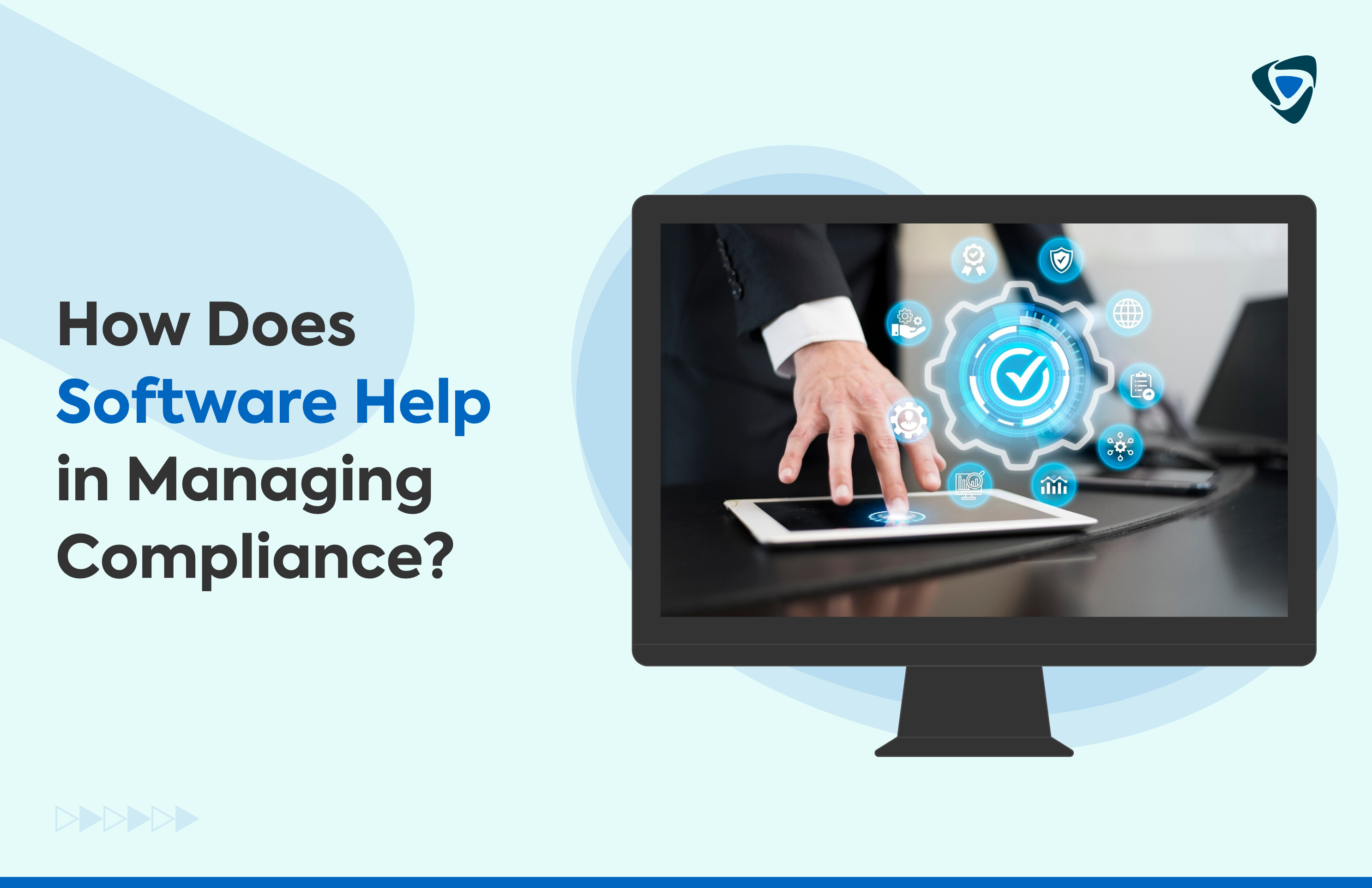
-
Streamlined Task Management
Retail compliance software provides centralized facilities for the creation of tasks, assigning and tracking them in a user-friendly manner. It simplifies workflow processes and guarantees the timely accomplishment of crucial compliance activities.
-
Automated Monitoring and Reporting
The software automates the monitoring of regulatory changes, quality standards and supplier performance. It produces real-time alerts and notifications, triggering proactive responses to remediate compliance issues promptly. Moreover, the automated reporting functions enable easy generation of compliance reports with minimal manual input and ensure accuracy.
-
Enhanced Supplier Collaboration
The software, by creating a central communication and collaboration hub across the globe, helps to build better relationships with suppliers. It allows dealers to readily share compliance requirements, track supplier performance, and manage documentation, thus making the supply chain more transparent.
-
Risk Mitigation
Retail compliance management software enables the identification and avoidance of risks through extensive audits, assessments, and reviews. It enables retailers to be proactive on potential problems, minimize disruptions, and protect the brand reputation as well as consumer trust.
Features of Retail Compliance Management Software
Let’s look at the crucial features of retail compliance management software so businesses can make the right choices to choose software that streamlines operations and ensures regulatory adherence in the retail sector.
-
Automation and Real-Time Monitoring
With retail compliance management software, a lot of routine compliance tasks are automated, including tracking regulatory changes to product quality assurance and control documentation. The real-time monitoring abilities provide timely detection and elimination of compliance problems.
-
Integration with Other Retail Management Systems
The software smoothly interfaces with the current retail management systems, such as inventory control, supply chain and point-of-sale. Integration promotes data sharing, simplifies processes and creates uniformity in various operational sections.
-
Customizable Compliance Workflows
Retail compliance management software provides configurable workflows that are designed for retailers’ unique needs and requirements. Users can not only define compliance processes but also automate them and assign tasks, set deadlines and track the progress thus resulting in improved efficiency as well as accuracy.
-
Document Management and Trails of Audit
The software offers strong document management functionalities that enable retailers to retain, organize and retrieve compliance documents with ease. Also, it keeps a complete audit log tracking all activities and changes for regulatory requirements as well as internal auditing.
-
Advanced Reporting and Analytics
The reporting and analytic capabilities built into retail compliance management software empower retailers to look closely at performance levels, trends, and areas of improvement. Personalization of reports and dashboards promotes data-focused decision-making as well as compliance with the regulatory body.
Benefits of Using Compliance Software in Retail
Companies can benefit significantly by utilizing compliance software in the retail sector. Let’s understand how it can help your business.
-
Streamlining Compliance Processes
The software for compliance of retailers makes the processes, which are rather complicated in the sphere of regulatory adherence, easier by performing tasks such as documentation and monitoring reporting. This efficiency also leads to saving time and other resources, thus allowing retailers to concentrate on their main business.
-
Reducing Risk and Avoiding Penalty
The software automates compliance monitoring and delivers real-time alerts to enable retailers to identify potential violations or issues on time. This preventive strategy minimizes the potential occurrence of non-compliance, hence mitigating chances for fines, penalties or tarnishing its reputation.
-
Improving Efficiency and Productivity
Automated workflows and data centralization offered by compliance software improve the efficiency of operations as well as productivity in retail environments. It frees humans from manual tasks, reduces mistakes, and accelerates processes, allowing teams to do more in a shorter time.
-
Enhancing Data Accuracy and Integrity
Retail compliance software provides validity and integrity of data related to compliance through strong validation as well as verification mechanisms. Establishing a single source of truth for compliance information minimizes data discrepancies and improves the accuracy level in decision-making.
-
Facilitating Better Decision-Making
The software enables retailers to make informed decisions by offering holistic insights and analytics on compliance performance as well as trends. This data-driven approach allows proactive risk management and strategic planning, which in turn enables a continuous improvement cycle that gives the organization a competitive advantage.
How to Choose the Right Compliance Management Software?
In selecting appropriate compliance management software for a retail business, some criteria should be incorporated to ensure appropriateness and efficacy.
-
Customization and Scalability
Search for software with adjustable features that can meet your compliance requirements and grow as you do. It must be easily adapted to change.
-
User Reviews and Industry Reputation
Conduct research on user reviews and feedback to measure the efficiency, reliability as well as users’ satisfaction with given software. Also, take into consideration the vendor’s reputation and experience in providing the services in the retail industry.
-
Integration Capabilities
Select software that smoothly connects to your current systems and operations, including stock management applications, ERP, or CRM solutions. Integration enables data sharing and process standardization between various departments.
-
Compliance Monitoring and Reporting Capabilities
Make sure that the software is equipped with good monitoring and reporting features to monitor compliance, produce reports on compliance status, and maintain audit trails. As you search, look for elements like instant notifications, personalized reporting templates, and broad analytics.
-
Training and Support
Assess the vendor’s training and support services, including onboarding assistance, technical support, and resources like documentation, tutorials or user forums. Training and support during implementation, as well as long-term usage of the software, are crucial for successful adoption.
How to Implement Compliance Management Software?
Effective implementation of compliance management software depends on the proper planning and execution. Let’s look at the steps to ensure seamless integration and effective utilization of compliance management software.
- Step 1: Evaluate Your Aims and Objectives
The scope of implementation can be determined based on your compliance requirements, goals and the key stakeholders.
- Step 2: Choose the Most Appropriate Software Solution
Select a compliance management program that fits your requirements, has required functionality and is affordable for you.
- Step 3: Customize the Software.
Personalize the software based on your needs by setting configuration, workflow and user permissions.
- Step 4: Train Staff on Software Usage
Train your staff members who are involved in compliance management fully to be able to use the software appropriately.
- Step 5: Utilize Best Practices to Improve Data Management
Set procedures for data entry, storage and access to ensure preservation of integrity as well as compliance with regulations.
- Step 6: Implement Monitoring and Reporting Procedures
Specify protocols related to the monitoring of compliance activities, report generation and non-compliance issues.
- Step 7: Set Up Lifecycle Management.
Provide ongoing support and maintenance in terms of software updating, troubleshooting, user assistance, etc.
- Step 8: Continuously Analyze Processes.
Carry out a constant assessment of your compliance management processes, find the weak areas and improvise as necessary.
The Future of Compliance Management in Retail
Emerging trends and technologies govern the future of compliance management in retail. Innovations like artificial intelligence, machine learning and the blockchain are set to transform compliance management in retail completely. Automation will emerge as a major game changer, streamlining processes by removing manual efforts and also increasing the accuracy of automatized functions.
Further, there is an increased focus on sustainability and ethical sourcing, which demand better transparency and traceability through the supply chain. Retailers are predicted to rely on innovative solutions that will help them maintain compliance as regulatory complexity grows alongside consumer demands.
Wrapping up,
Compliance management software is of great importance for retailers to maintain regulatory standards, consumers’ safety and brand image. The adoption of technology-based solutions is not only efficient in terms of compliance processes but also boosts efficiency and accuracy.
Retailers will be able to handle compliance with confidence as they strive for competitive advantages in a dynamic market through the utilization of cutting-edge tools and being aware of current trends. Retail businesses in this age must adapt to technology as a strategic asset for securing better compliance outcomes and operating sustainably into the future.
Choosing the right compliance management software is essential. Schedule a demo with Taqtics if you are looking for a robust and scalable solution that can be tailored to your business requirements.
 Schedule A Demo
Schedule A Demo 


